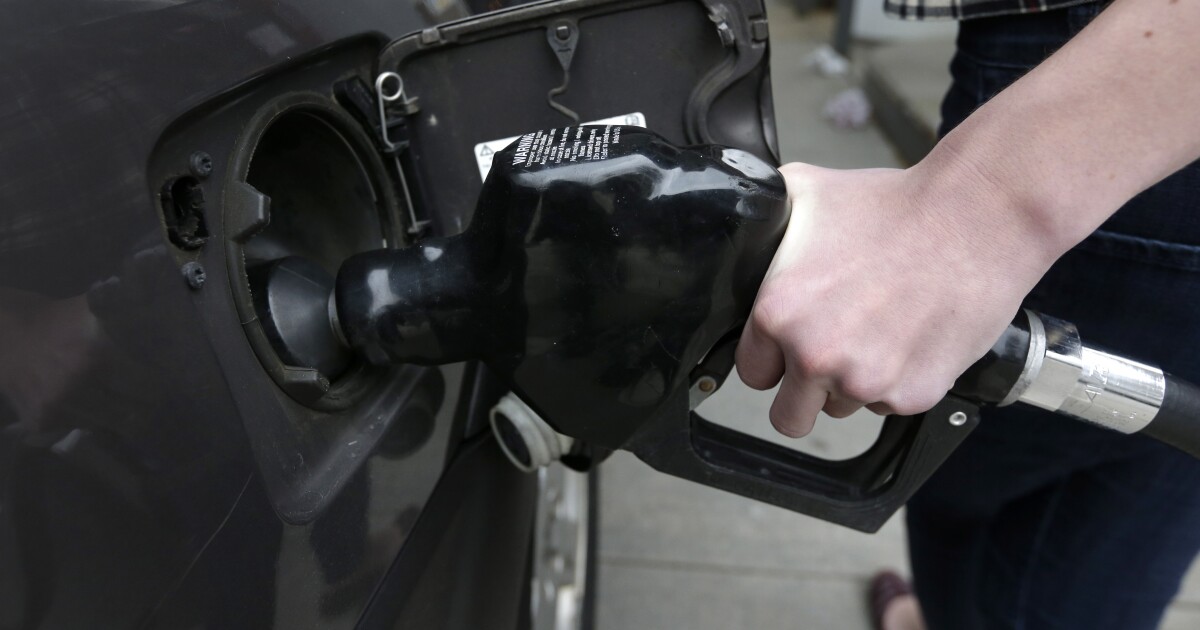

(The Center Square) – Washington state Gov. Jay Inslee was adamant last year that energy prices would not increase as a result of his signing low-carbon fuel standard legislation into law.
“And don’t let anybody give you that swill that somehow it’s gonna increase prices,” an animated Inslee said at the May 17, 2021 bill-signing ceremony.
An independent report commissioned by the state Department of Ecology throws cold water on Inslee’s contention.
Under a sub-headline touting “little impact on gas prices” on its website, Ecology staff wrote, “Washington’s new Clean Fuel Standard will mean less than a 1-cent per gallon difference in the price consumers pay at the gas pump in 2023, according to estimates in a third-party economic analysis. Prices could rise up to 2-cents in 2024, and 4-cents in 2025, the report shows.”
The study, conducted by global consulting firm BRG Energy & Climate out of the San Francisco Bay area, found that the low-carbon fuel standard per House Bill 1091 would increase “the costs paid by consumers for gasoline, diesel, and electricity.”
Not mentioned in the Ecology website piece is the fact the report projected that by 2031, the low-carbon fuel standard would add 19.3 cents to the cost of a gallon of gas.
The Washington Policy Center, a Seattle-based free market think tank, took a victory lap, citing the report as vindicating its own energy cost predictions made last year.
“By way of contrast, those projections are almost exactly what we predicted,” Todd Myers, environmental director for the WPC said in a blog. “We predicted that in the first year of the LCFS, it would add about one cent to the price of gasoline, exactly as Ecology’s report indicates. We predicted that it would add about 20 cents per gallon by 2030. Ecology’s report estimates 19.3 cents by 2031. So, we were off by one year.”
Myers went on to detail what the projected cost increases could mean for Washington drivers.
“For those keeping track, the 19.3 cent increase from the LCFS in 2031 would be on top of a projected 80 cent increase per gallon from the state’s new emissions tax,” he explained. “So drivers in Washington will pay an extra 99.3 cents per gallon in hidden taxes on gasoline in addition to the actual state gas tax of 49.4 cents per gallon and federal gas tax of 18.4 cents per gallon, for a grand total of just over $1.67 per gallon.”
The bottom line, according to Myers, is that no-cost increase claims by government leaders and other proponents of the low-carbon fuel standard were incorrect.
“It is unclear to me whether the politicians and advocates who said the LCFS wouldn’t increase gas prices were being intentionally misleading or actually believed what they are saying,” he said. “Either way, they were wrong, and the costs will be paid by Washington residents without any benefit to the environment.”
The Center Square reached out to the Governor’s Office for comment on the study and the WPC’s reaction to it.
“Geopolitical forces have far more impact on gas prices than policies to push back against the oil industry’s unfettered ability to pollute our planet, but WPC remains committed to conflating and misrepresenting the data,” Inslee spokesman Mike Faulk said in an email. “The claims in this report combine parts of the Ecology report with erroneous claims about the impacts of the Climate Commitment Act.”
He went on to say, “The Ecology report shows that in the short term and long term there is very little impact.”
He referenced an excerpt from Ecology’s website to back up his claim: “The analysis shows price impacts vary over the next 12 years, and then drop to nearly zero as the number of electric cars increase and there’s a shift to cleaner energy.”
Faulk was critical of WPC’s take on the report and what it means.
“The cherrypicked soundbite in WPC’s report – spun as if that’s all the governor ever said about potential impacts – were in reference to overblown claims about the LCFS’s potential impact on prices,” he said. “The governor often said consumers would not see significant increased costs. These laws also help accelerate our transition to cleaner transportation, meaning cleaner air, especially for low-income communities living near highways. And of course it reduces emissions contributing to our increasingly intense heat waves, fires and droughts.”
Faulk had harsh words for fossil fuel companies he contends are fighting against a clean energy future.
“Fossil fuel interests and their supplicants continue to spread misinformation on policies like clean fuels and cap and invest, because those laws will deliver a future where customers have clean alternatives and get free of price gouging by big oil companies,” he said.






